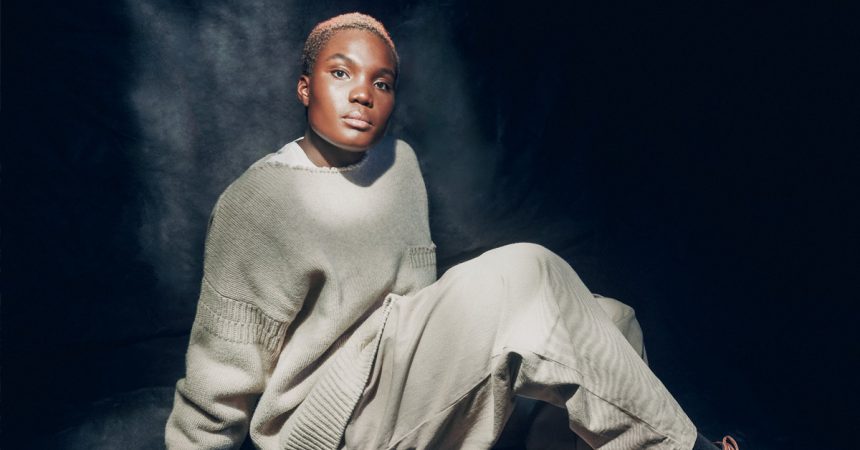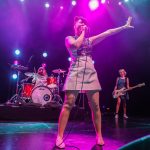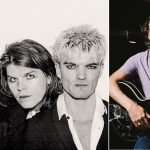Arlo Parks appears on the cover of the Winter 2023 Issue — head to the AP Shop to grab a copy.
Arlo Parks has always sung from the heart. Lauded for her vivid imagery, the young singer-songwriter seems to wear her heart on her sleeve. But on My Soft Machine, her sophomore album, Parks’ storytelling comes from somewhere deeper than before, as if it’s always been there, pulsing beneath prickled skin. Each song unfolds before its listener a collection of colors, scenes, and sensations as textured in their nuance as their delivery. With laser-focused lyricism, she pulls blood to the surface, running a finger over cold skin and admiring the mark it makes, blush-colored and bruising.
“I wish I was bruiseless/Almost everyone that I love has been abused, and I am included,” Parks opens the album, giving voice to guilt and desire in the same breath.
Read more: 24 of the most exciting rising artists to watch in 2024
My Soft Machine and The Magic Border, the album’s complementary poetry book, are exercises in contradiction as Parks explores love in all its forms in the hopes of healing — a testament to the maturity of a 23-year-old singer who refuses to lose her doe-eyed outlook on life.
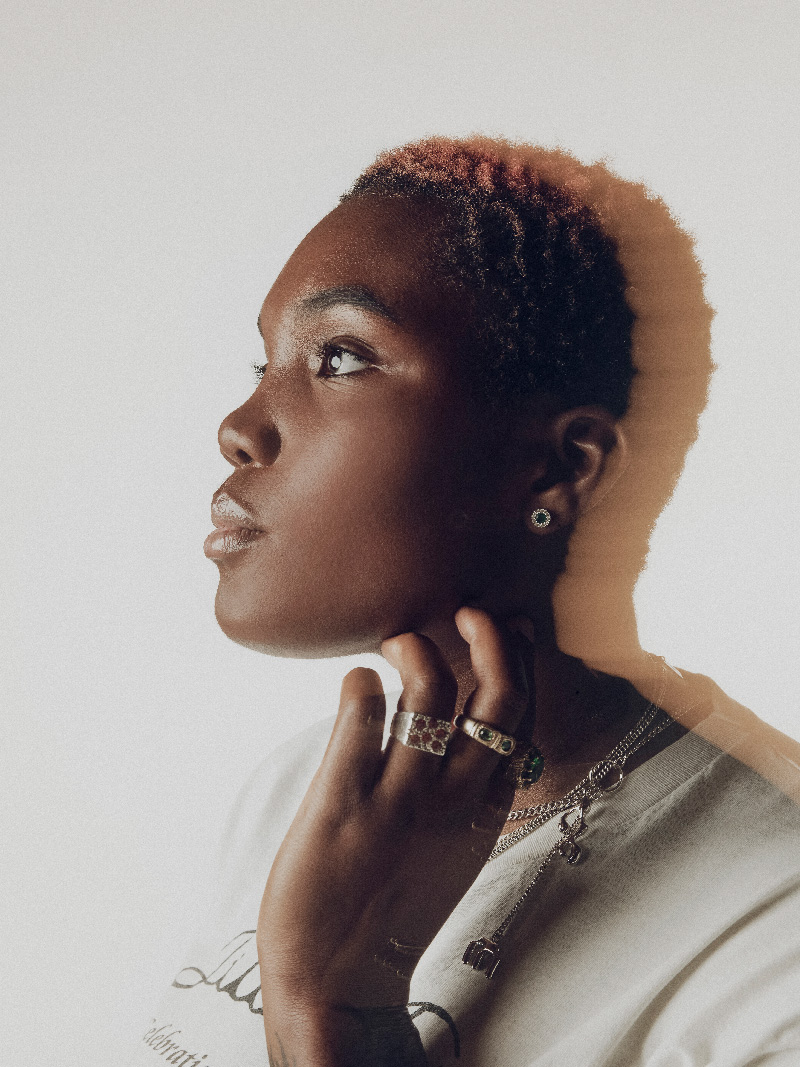
Calling in from her LA home, the London-born artist meets our conversation with gravity, choosing each word with intention. There is exchange throughout My Soft Machine and The Magic Border, and Parks picks up on patterns in conversation with an intrinsic eye for language. As detailed in the forward of The Magic Border, hers is “a language of extremes.” But Parks has moved past the moody lover archetype first heard on “Cola,” the SoundCloud song that first earned her fame, and is steadily approaching her center, recognizing that the most opposing emotions often exist all at once.
On My Soft Machine, Parks sings of innocence lost and surrendered; wounds resolved and reopened; loves lost and let go. Her stream-of-consciousness style takes listeners through influences in shoegaze, dream pop, and folk, dropping names and nods to indie music greats like My Bloody Valentine, Grouper, and Beach House along the way. While her lyrics suspend tension throughout, the album’s production swells toward resolution, inviting a breezier pop sound from the lo-fi artist. But the hand-made texture of her storytelling remains, pushing into in-between spaces. In her pursuit of deeply personal spaces, Parks burrows below burst blood vessels, finding only more tenderness beneath purpled skin.
I’ve been poring over The Magic Border and listening to My Soft Machine, like overlapping. It’s such a sensory experience. So that’s where I’d like to start the conversation. Can you tell me a bit about what you’re experiencing right now — what you’re feeling, seeing? What kind of images are populating your days?
Well, right now I’m in California, and I feel like whenever I’m here, I’m just soaking in nature. So I’ve been spending a lot of time by the ocean, in the desert as well. I’ve been sharing food with friends. I’ve been on this little mission to find all the best spots in LA. I’ve been spending a lot of time with my partner as well. She’s very into identifying trees and flowers, so we’ve been going around with this little app and trying to learn more about the California wilderness.
I’ve also been in a quite reflective, insular mode, just really trying to absorb. I bought a stack of art books. I’ve just been learning. I feel like I’m in a studio mode and building more community. Having long calls and conversations with other artists about the world and their practices, or just checking in. It feels like a very tender time, which is nice. I’m feeling very raw but also tender, being gentle with myself and my friends.
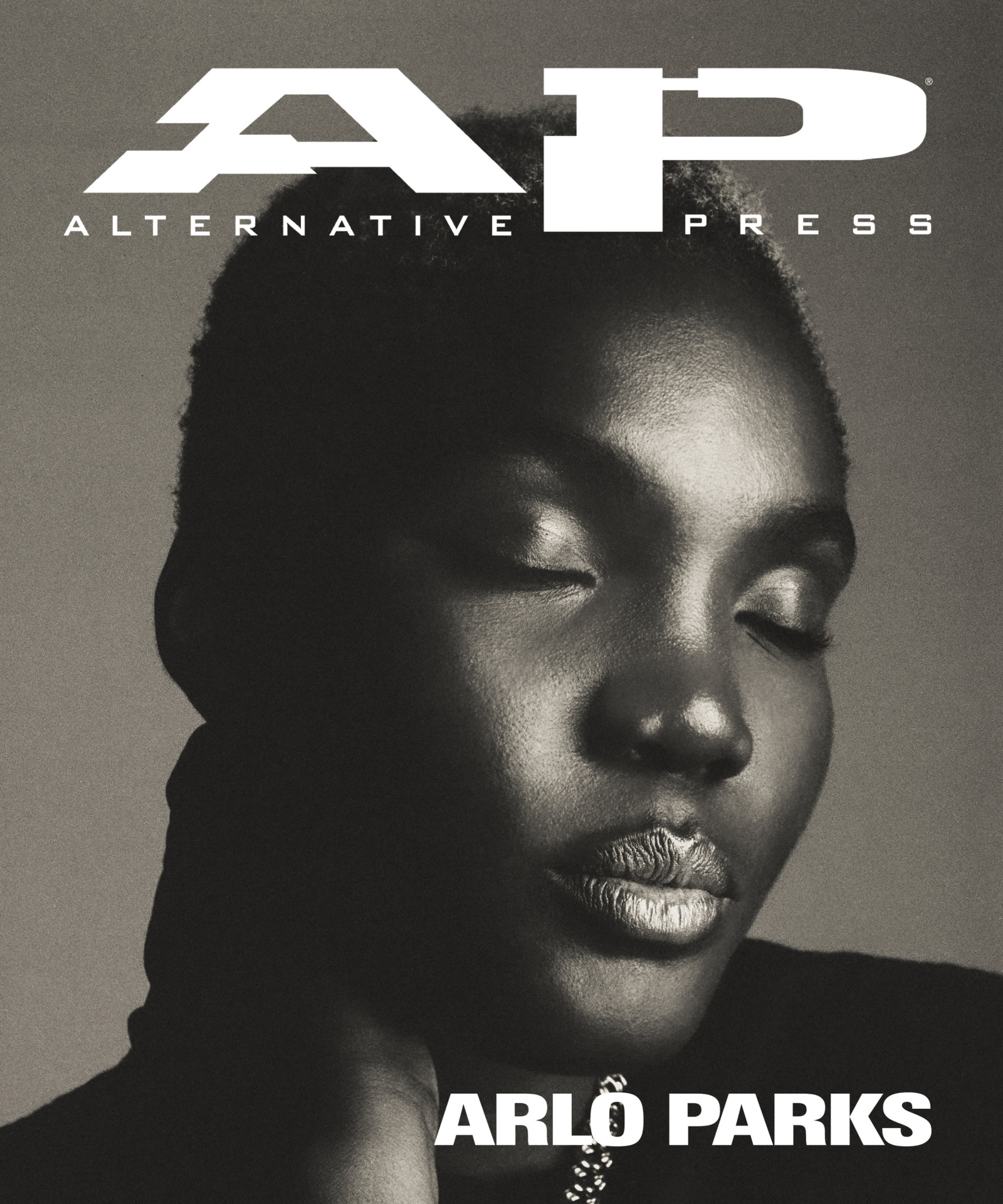
Are there any specific trees or plants you’ve been fixated on?
Yeah, I’ve been really into eucalyptus. That’s been a big plant for me. I had a friend tell me about that thing where you put eucalyptus in the bathroom and the steam of the shower creates this mist. It feels like you’re in a garden. I’ve been obsessed with eucalyptus. I’ve been obsessed with this tree called the honey locust as well. I love fiddlehead ferns. I’m big in my tree vibe — I don’t really know why, but I think it’s grounding to pay attention to things that are so much older and larger than me. I feel like, in moments where I feel overwhelmed, there is this very specific peace that comes from spending time in trees.
I feel like a lot of the conversations in The Magic Border and My Soft Machine occupy that space of tenderness with friends, vulnerability, and those conversations that bring you a little closer to yourself. I wonder what topics and conversations you’ve been having with people lately.
I was having a conversation with my friend Chella Man the other day, who is a painter, an activist, a director, and just a general creative person. He was talking about this idea that “nothing real can be threatened,” and what he means by that is the fact that your creativity and your heart and your values will remain, even if everything else falls away, and that sense of popularity or how you’re perceived by others can change and be taken away and dissolve, but nothing real can ever really go away, and what is real is the creative spirit and the curiosity and the wonder for the world.
I enjoy conversations with my friend Lucy Dacus as well, who gave me this book of poetry by Ada Limón. She was talking about the idea of writing about things that are hard to notice, really zoning in on tiny details and how sometimes the most disarming thing to read is this tiny detail in a relationship or in a life or in a home or in a friendship that is so hard to notice. You can tell that the writer goes to the world with a magnifying glass. That’s kind of what I feel like, just making a lot out of those smaller details.
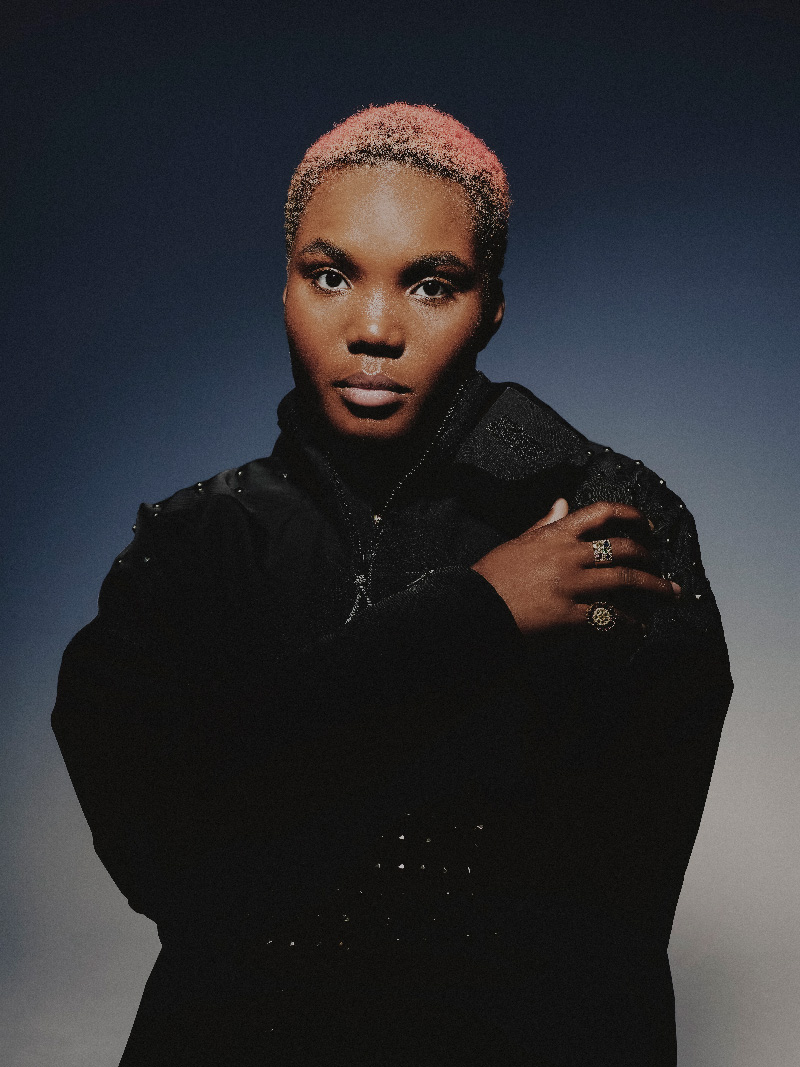
I’m definitely interested in the idea that nothing real can be threatened. It feels like the idea of soft, permeable borders and tender mechanisms — subtle contradictions — populate the album and the poetry book. I’m wondering if you feel that any part of yourself was threatened by an outside force, and how you preserved yourself or allowed yourself to change.
Threatened maybe isn’t the right word, but I definitely feel like I have to be a lot more intentional about keeping my work and what I do untouched, creating a little bubble around myself. Now I’m fortunate enough that when I put something out, people hear it, but I think I have to detach myself from the audience. I love putting out music and it being a conversation with the world. But for me, it’s so important that it still stays very personal. I think that is a balance, just having [to be] quite protective over my work in the beginning.
Honestly, I feel like I’m in quite a peaceful mode in terms of liking what I’m doing and knowing what is real and important. I feel like I’ve always been quite sure about those things, even when receiving criticism. If people don’t like what I do, that’s fine. I’m OK with that because with music and books, there’s a reason why they move certain people so deeply. Then there are other people who it does nothing to. That balance is so important. I really want to go inward and create something that comes from a completely pure place. For me to do that, I have to really just pretend like no one’s watching.
Yeah, it’s like emanating instead of projecting.
Exactly, I like that.
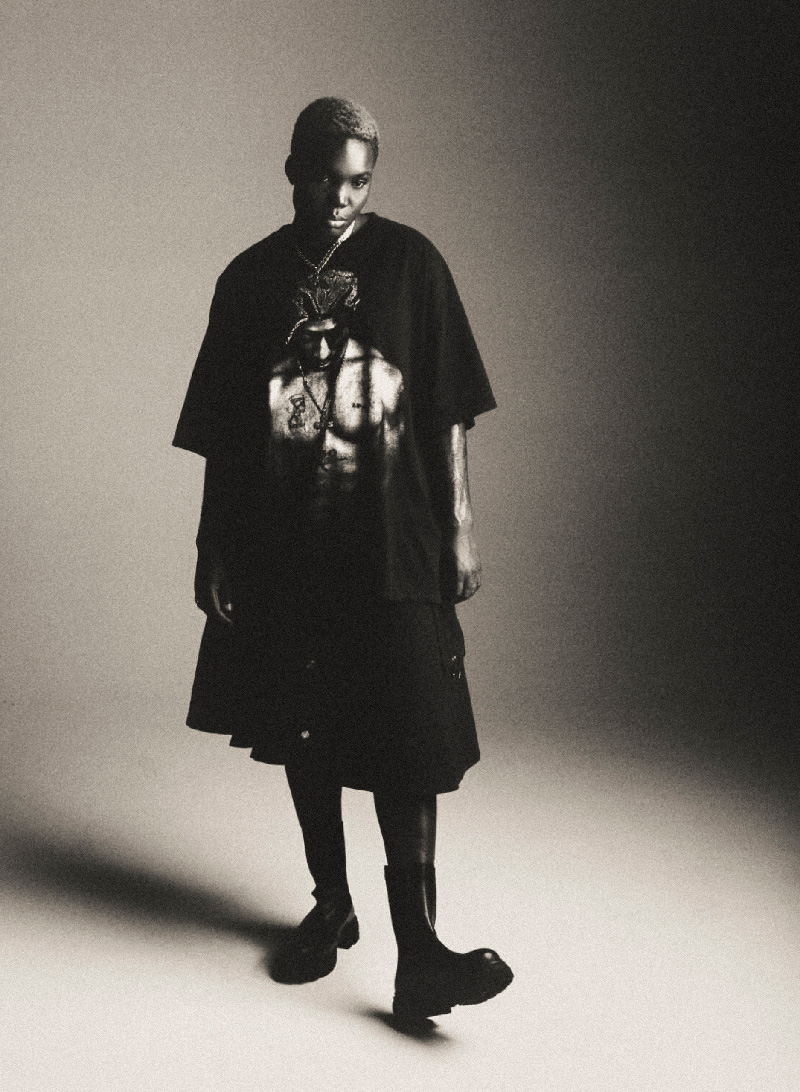
What do you feel you were migrating toward through the process of the album and the poetry book?
I feel like I was moving towards being more discerning in terms of knowing what to carry with me and what to leave behind. Moving into my 20s, or even from being a teenager into my 20s, I’ve been thinking about the wounds that I carry and the beautiful people that I’ve met and the things that I’ve learned about myself and realizing that I can choose what I take with me and what I don’t, and that has definitely been a key part of the book and the record.
I think I’ve also been allowing people in, being somebody who is accepting the fact that they are porous, and just celebrating love in different forms — whether that’s platonic love or romantic love. I’ve been honoring the in-between in all things. Even with things in the past, not everything has to be completely healed or damaged. There’s always a middle space, and I think that links to the bittersweet idea that I’ve always had at the basis of everything I make. That sense of wanting to talk about the world as it is. I feel like that comes from balance and drawing attention to the things that are difficult and beautiful about a situation, simultaneously.
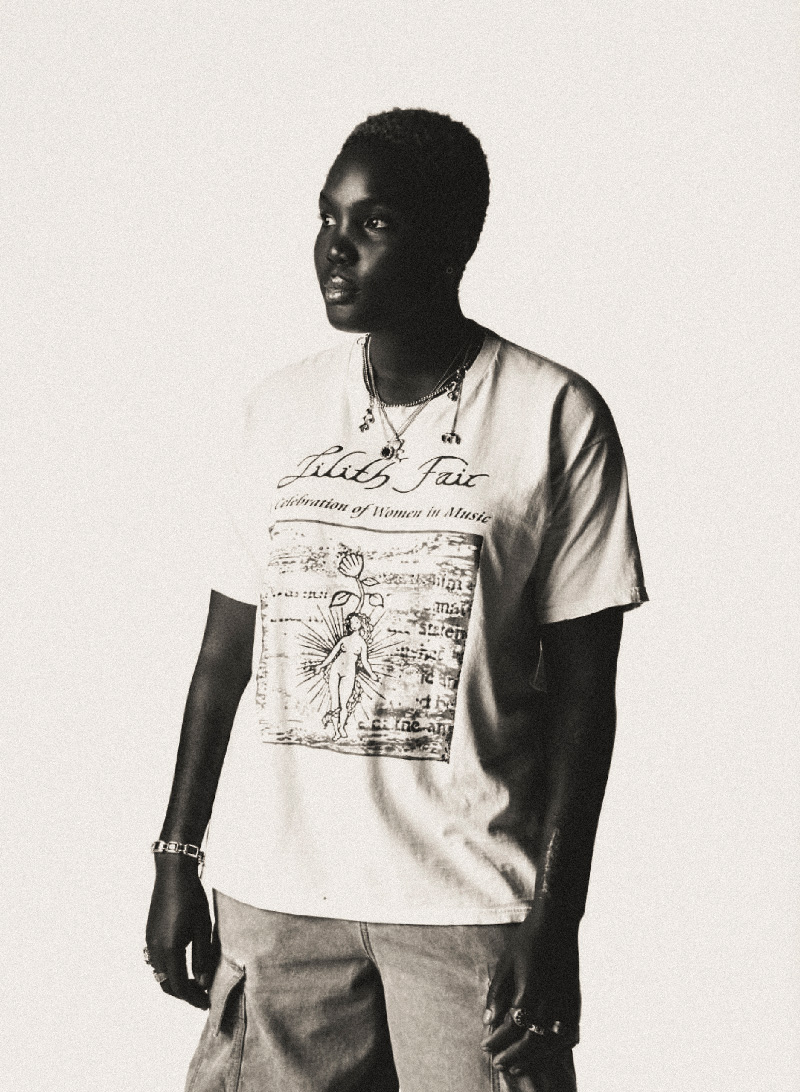
Yeah, like things that are not directly opposing, but subtly contradicting.
Exactly. It reminds me of this thing that Ocean Vuong said when he was talking. I actually discovered it quite after the fact, but it was that idea. He had this quote that’s like, “Do you ever wonder if sadness and happiness can be combined? Not good, not bad. You don’t have to live on one side or the other. It makes a deep purple feeling.” I’ve literally butchered that.
I liked it that way, though.
I just added on the bit that I forgot at the beginning to the end. But it’s that sense of not being necessarily good or bad. It’s a continuum. I interviewed him for my radio show. He was such a wise person. There’s some people I feel, especially authors, that just have a way when they speak. I felt that way when I spoke to Ocean Vuong and when I spoke to Zadie Smith as well. There’s something so interesting about talking to people whose discipline is solely words, because that’s something that was my first art form, but is kind of new to me.
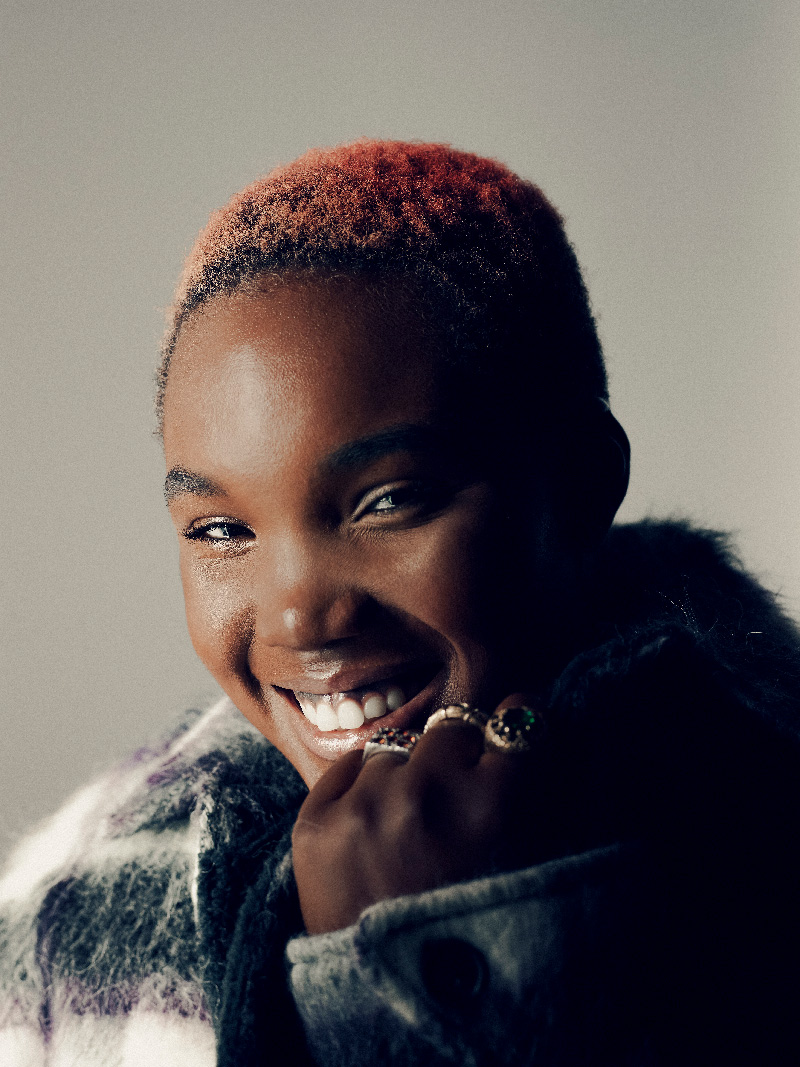
What has that been like, coming into using static language? Or language on its own?
There’s something about it that feels quite exposing. With the poetry readings, for example, it’s so quiet, you can hear a pin drop, and it’s just my voice ringing out in a way that feels very vulnerable. But at the same time, it feels like coming home because I started off writing short stories and poems. That was my first love and my first form.
It’s built a lot of community around itself. A lot of English teachers are coming in and buying massive stacks to teach their kids at school. Something that I’ve been really honored about was also older folks coming and being like, “I always wanted to write, and now I feel like I finally built up the courage, having read this, to do it.” That sense of being able to unlock something that a person has wanted to do and also on the other end of the spectrum, the tiny 10-year-old kids with little notebooks being like, “I want to write.” You know, just feeling like you’re moving people towards the expressions of themselves.
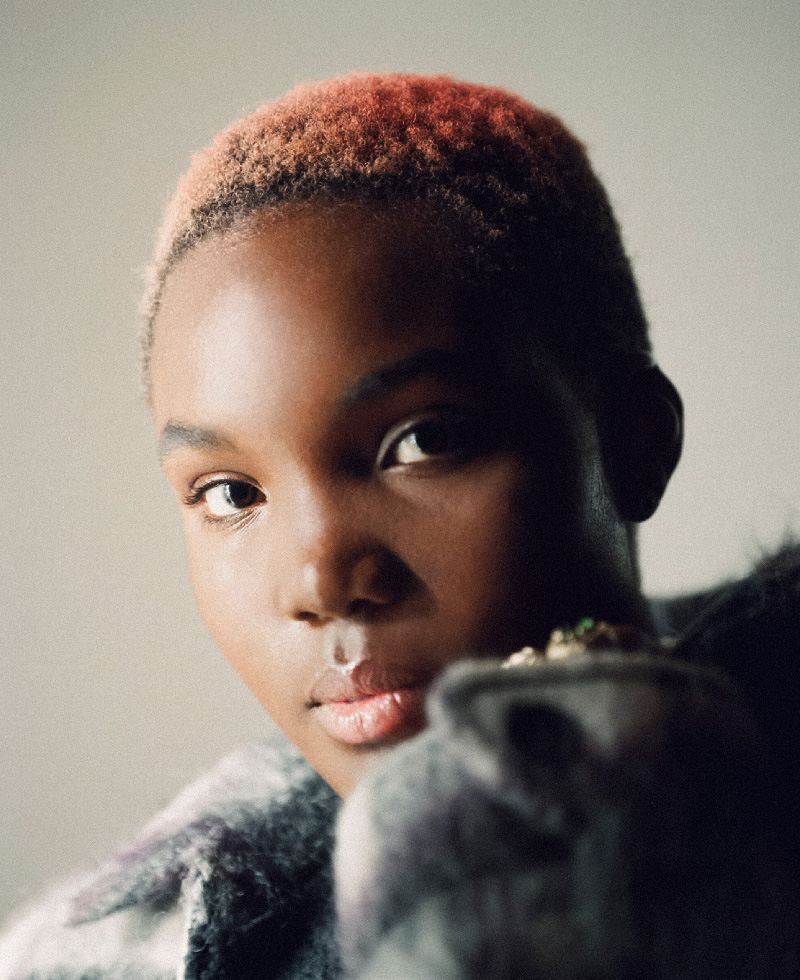
What was that process like with Daniyel Lowden? How did the photos, poetry, and music all converse with each other?
I was just writing a lot when I was working on My Soft Machine. I was collecting phrases and figuring out what it was that I wanted to say. So there were notebooks and notebooks full of notes. And that was almost the clay for me. I was forming the songs, but also finding that there were thoughts that I wanted to leave untouched or long ramblings or streams of consciousness, and I put those aside, and I was writing poetry just for the sake of it as well.
By the end of it, I had this collection of poems, and I sat down with Dan, and we listened to Grouper and sat in his kitchen and went through almost 20 years of his archives of photography. I feel like because we’re so close, we were quite hive mind about it, where we immediately knew what images would go well. He would share with me the stories of those characters, and we would try and align the story of the poem and the story of the photograph so that it felt like they were in tune with one another. It was a very quiet practice of finding the spiritual twins between the photographs and the words. We spent a few days doing that, and that was that.
Was there anyone who moved you to explore poetry and put the book together — anyone who gave you the courage to do it?
It was from inside. I think, for me, it really comes from inside. I think it just fell into place. Asking Dan to do it with me helped, just having one of my best friends on board. It seemed like it was something that was coming from a place of friendship and sharing it with someone who was super important to me. It happened by accident. I feel like I struggle to do things by external influence. It’s always just something inside me moves, and then I have to do it.






